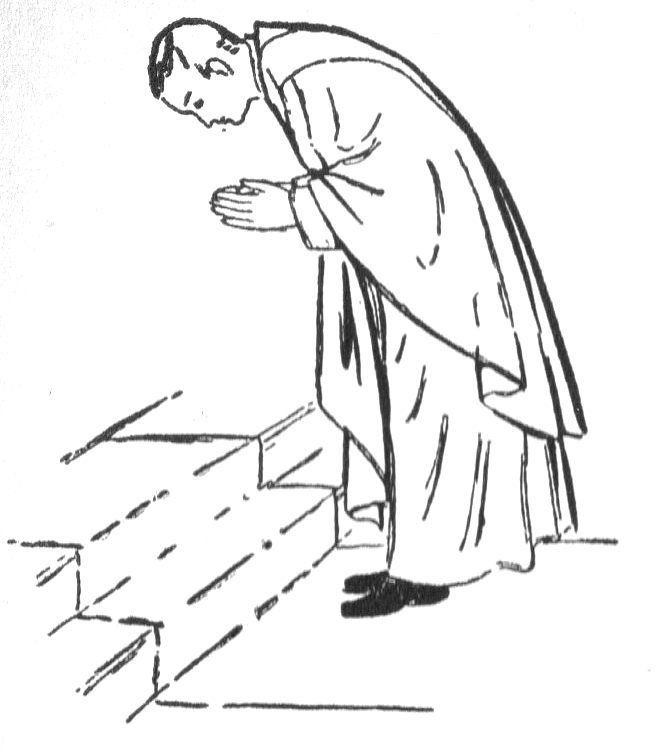
More classic art masterpieces used as illustrations
TL;DR:
This case study explores the cultural and theological dilemma faced by Korean Christians during Chuseok, Korea’s major harvest and family holiday. While the festival shares similarities with American Thanksgiving, it includes ancestral rituals at family tombs where participants bow, offer food, and invoke blessings from deceased relatives. An accompanying acrostic “BOWING” explains the traditional meaning behind ancestral bowing. An afterword outlines eight steps for cross-cultural sensitivity when evaluating such practices.

Is the Korean Chuseok an act of worshiping the deceased?
Some general case study guidelines to aid reflection and discussion.
An American graduate student is teaching English in Korea. He writes back to his professor in the U.S. with a question: Are there shades of meaning in ceremonial bowing at ancestors' tombs that make that practice unacceptable to Christians?
Here's the student's letter:
Dear professor:
In our Cultural Anthropology class, you had us do some case studies involving dilemmas faced by people of other cultures after they became Christians. I've been thinking about those that, in particular, involved new Christians who felt they could no longer participate in some of the traditional practices that their families expected them to.
This past weekend -- September 17 -- was a major Korean holiday. The traditions associated with that holiday pose challenges for Korean Christians, challenges that are similar to those in the case studies we looked at in class.
The name of this holiday is Chuseok (also spelled Chusok or Ch'uso k). Chuseok is somewhat comparable to the American/Canadian Thanksgiving in that it involves a harvest celebration and is connected to their Harvest Moon.
The holiday lasts three days. During that time, everyone goes home to the grandparents' house on the father's side, where the entire family will gather. There are a lot of gifts given and large meals eaten. During this holiday, the grandparents will decide if this is the right time for the younger married couples to have their first child or to add another one, as the case may be. From what I understand, Chuseok is Korea's largest and most important holiday, surpassing even Christmas.
What makes the celebration of Chuseok problematic for Christians is that, during the holiday, families visit the graves of their deceased ancestors. During these gravesite visits, rituals of gratefulness to the ancestors are performed. The ancestors are thanked for providing materially for those currently alive. Prayers are said to the deceased, and food is often offered to them. The blessing of the ancestors is invoked, during which time everyone bows before the tomb or tombs.
Today, I had a discussion about this with Dr. Cho, a Korean Bible professor from a nearby university who attends the International English Church. He told me that while he and his family visited the gravesite of his deceased family members during this year's Chuseok, they did not bow as is the traditional custom.
"Christians do not bow," he told me.
Our own pastor was there for part of the discussion, and he mentioned that Catholics are permitted to bow in this situation. He also noted that many Korean Protestants consider Roman Catholics to be idol worshipers anyway.
This issue is a source of tension for families in which some of them have become Christians and refuse to bow at the tombs of their ancestors. Other members of the family consider this refusal to be a serious form of rejection of the family.
What if I get asked about the dilemma facing Korean Christians? How should I respond? Since the practice of bowing for greeting is such a core feature of Korean culture, could a Christian bow before the grave of an ancestor as a form of showing respect without it being an act of worshiping the spirit of the deceased? If so, how do
the Christians distance themselves from the prayers being said to the deceased and from the food being offered to them?
Sincerely yours . . . .
-- Howard Culbertson, hculbert@snu.edu
B – Blessing -- Seeking blessings from ancestors and show gratitude for their guidance.
O – Obedience -- Demonstrates respect and filial piety, a core value in many Asian cultures.
W – Worship -- A form of ancestral veneration, honoring the spirits of the deceased.
I – Interconnection -- Symbolizes the strong bond between the past, present, and future generations.
N – Nostalgia -- Reflects love, remembrance, and appreciation for ancestors’ sacrifices.
G – Gratitude -- Expresses deep thankfulness for the life, wisdom, and heritage passed down.
When a Christian from one culture seeks to assist Christians in another culture in deciding whether certain practices are wrong, the situation must be approached with sensitivity and humility. There needs to be a genuine desire to understand the cultural context and biblical principles involved. Here are eight action steps: